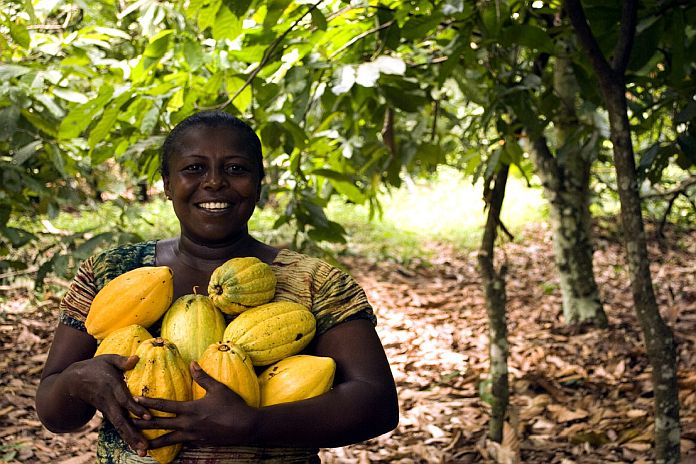ROME, Italy — Within the framework of the UN Food Systems Pre-Summit inaugurated this Monday in Rome, the I Forum of ministers and vice-ministers of agriculture of the Americas was formally established as an entity whose mission is to improve public policies and spotlight the role of women in rural development, favoring the full recognition of their rights.
The inauguration, which was attended by the female ministers, secretaries and deputy ministers of 12 countries of the Americas, was a key step to institutionalizing a space to propose specific policies to promote the sustainable development of agrifood systems through recognizing the crucial contribution of the continent’s rural women to eradicating extreme poverty and hunger.
The meeting at which the Forum was established was convened by the Inter-American Institute for Cooperation on Agriculture (IICA) and held at the Brazilian Embassy in Rome concurrent with the Food Systems Pre-Summit that runs through July 28 in the Italian capital.
Participants included Samantha Marshall, minister of agriculture and fisheries of Antigua and Barbuda; Tereza Cristina, minister of agriculture, livestock and food supply of Brazil; María Emilia Undurraga, minister of agriculture of Chile; Tanlly Vera, minister of agriculture and livestock of Ecuador; Jewel H. Bronaugh, deputy secretary of agriculture of the United States; and Natasha Kim, assistant deputy minister for agriculture and agri-food of Canada.
Also in attendance were Martha Lucía Rodríguez Lozano, deputy minister of rural development of Colombia; Lily Pacas, deputy minister of agriculture and livestock of El Salvador; Judith Ordóñez deputy secretary of livestock of Honduras; Bettina Aguilera Paniagua, deputy minister of agriculture of Paraguay; María Isabel Remy Simatovic, deputy minister of policies and supervision of Agrarian Development of Peru; and Miriam Guzmán, deputy minister of rural development of the Dominican Republic.
Approximately 58 million women live in the rural areas of Latin America and the Caribbean and are responsible for 80 percent of all food production. However, their work is underreported and a mere 10 percent have access to credit and only 5 percent to technical assistance programs.
The Forum’s presentation, whose first meeting was entitled “Women at the Forefront of Agri-food System Transformation”, was led by Manuel Otero, director general of IICA, and Rebeca Grynspan, Ibero-American Secretary-General.
The participating ministers and deputy ministers showed interest in the Forum becoming a space for dialogue and exchange to share experiences in managing access to credit, the availability of new technologies, land tenure and ownership and other issues from which the rural women of the Americas—who make a decisive contribution to regional and global food security—have been historically excluded.
“We should be discussing public policies and exchanging information to help the rural women on our continent. We are currently undergoing deep transformations in our society and the role of women as change agents is more and more evident. Women’s empowerment is key to guaranteeing global food security,” stated Brazilian minister Tereza Cristina.
Ecuadorian minister Tanlly Vera explained that poverty, food insecurity, unemployment and a lack of social protection are just some of the challenges facing rural women. “The time has come to recognize and spotlight the role we play in the field. We can contribute a lot to eradicating hunger and poverty and to reducing inequality.”
For her part, minister Marshall emphasized the disadvantages women face compared to men and urged for work in the post-pandemic era to focus on changing this reality: “We need to educate our women in order to strengthen their abilities.”
For María Emilia Undurraga, the variety of areas in which women work in the rural sector reflects their heterogeneity and worth. “We are connected to the well-being of the entire population, especially the inhabitants of cities. That is why it is fundamental to close the gaps between the rural and urban sectors,” she stated.
In Canada, the percentage of women who work in agriculture has risen over the last few decades, stated Natasha Kim, who explained that removing the barriers women face in terms of accessing markets and value chains continues to be a pending matter.
Deputy secretary Bronaugh agreed that women play a central role in agriculture and felt that they should be assured “positions of leadership.” “We need to pave the way for young women who look up to us to have a seat at the decision table.”
The Dominican deputy minister underscored that while women work in rural areas, when profits are distributed, they do not receive their fair share and advocated for a more equal distribution. Minister Rodríguez from Colombia emphasized the need to propose a differentiated approach for rural women to have more access to credit.
“We must work to ensure women are paid a fair price. The transparency of the production chains is essential,” stated deputy minister Pacas from El Salvador. Meanwhile, deputy secretary Ordóñez from Honduras defended the administrative ability of women: “When a woman receives a loan, she makes better use of the money.”
More than half of all food is produced by women in the Americas, explained Rebeca Grynspan, who made it clear that women are not vulnerable. “An intrinsic vulnerability doesn’t exist; what exists is a violation of rights. What we need is to be seen in our capacity to transform the rural world and society.”
Grynspan urged that we stop thinking about the rural world with a 20th-century mentality and for women to have access to land and credit. “In the post-pandemic era, we need a different rurality to go with a new, more inclusive and improved normal,” she concluded.
Manuel Otero chose to highlight the importance of establishing the Forum of ministers and vice-ministers of the Americas in concurrence with the global event that will be discussing the future of agrifood systems in the world.
The director-general of IICA summarized the statistics on the invisibility and violation of rights suffered by rural women on the continent and ratified the Institute’s commitment to empowering women and their full participation in production processes with equal rights.





